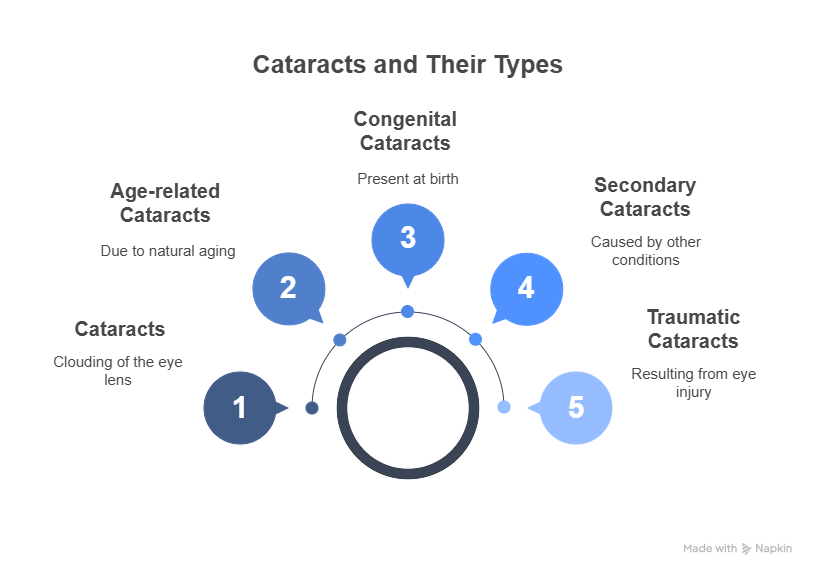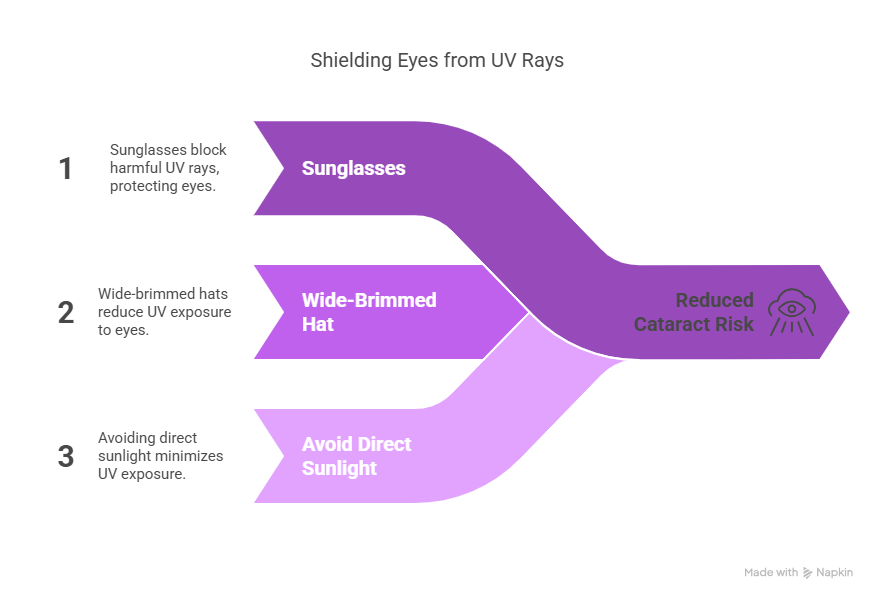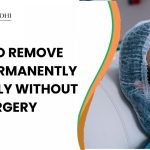|
Getting your Trinity Audio player ready...
|
Cataracts are a common vision problem, especially as people age. The condition occurs when the lens of the eye becomes cloudy, leading to blurry vision, glare, and difficulty seeing at night. In many cases, surgery is considered the go-to treatment for cataracts. However, many people wonder if it’s possible to have cataract removal without surgery. While surgery remains the most effective treatment, there are alternative methods and lifestyle changes that can help manage cataracts, especially in the early stages.
In this blog, we will explore cataract removal without surgery, the various natural treatments available, and how you can potentially delay or manage the condition with non-surgical options. We will also discuss when surgery is necessary and why it’s important to consult with an eye care professional.
What Are Cataracts?
Cataracts are a common eye condition where the natural lens of the eye becomes cloudy or opaque, impairing vision. The lens is responsible for focusing light onto the retina, and when it becomes cloudy, light is scattered, leading to blurry vision. Cataracts can develop gradually, and the severity of the condition increases over time.
There are different types of cataracts, including:

- Age-related cataracts: The most common type, usually occurring due to the natural aging process.
- Congenital cataracts: Present at birth or developed in childhood.
- Secondary cataracts: Caused by other health conditions like diabetes or as a side effect of medications.
- Traumatic cataracts: Caused by an injury to the eye.
The cloudiness of the lens leads to a range of symptoms, including difficulty reading, seeing in dim light, sensitivity to glare, and blurred vision.
What Is Cataract Removal Without Surgery?
When you think about cataract treatment, surgery is typically the first option that comes to mind. However, cataract removal without surgery refers to methods and treatments that aim to manage or slow down the progression of cataracts without needing an invasive procedure. While these methods cannot completely reverse cataracts, they can help you maintain your vision and delay the need for surgery.
Why Consider Cataract Removal Without Surgery?
Many people are hesitant about undergoing surgery due to the costs, recovery time, and potential risks. Some individuals may also prefer to avoid surgery if their cataracts are still in the early stages and not severely affecting their vision. In such cases, cataract removal without surgery can offer several benefits, including:
- Non-invasive treatment: Unlike surgery, which requires an incision, non-surgical treatments do not carry the risk of infection or complications.
- Cost-effective: Non-surgical treatments are generally more affordable than surgery.
- Convenience: These methods can often be done at home or in a clinic with minimal disruption to daily life.
However, it’s important to note that non-surgical treatments only address symptoms and cannot eliminate the cataract. As cataracts progress, surgery may still be necessary for clearer vision.
Methods for Cataract Removal Without Surgery
There are several natural treatments and methods that can help manage the symptoms of cataracts and may delay the need for surgery. These treatments can improve eye health and vision clarity, but they should be used in conjunction with regular eye check-ups and professional guidance.
1. Proper Nutrition and Diet
A healthy diet plays an essential role in eye health and can help prevent or slow down the progression of cataracts. Certain nutrients, including antioxidants, vitamins, and minerals, can protect the eyes from oxidative stress and free radical damage that contribute to cataract formation.
- Vitamin C: Known for its antioxidant properties, vitamin C helps protect the eyes from damage caused by free radicals. It is found in citrus fruits, bell peppers, strawberries, and broccoli.
- Vitamin E: Another powerful antioxidant, vitamin E helps protect the eyes from oxidative damage. Foods like almonds, sunflower seeds, and spinach are rich in vitamin E.
- Lutein and Zeaxanthin: These antioxidants are found in dark leafy greens like kale, spinach, and collard greens. They help filter harmful blue light and protect the retina.
- Omega-3 Fatty Acids: Found in fish like salmon and mackerel, omega-3 fatty acids help reduce inflammation and support overall eye health.
A well-balanced diet rich in these nutrients can play a significant role in cataract removal without surgery by protecting the lens and slowing the formation of cataracts.
2. Eye Drops and Natural Supplements
Certain eye drops and natural supplements may help manage the symptoms of cataracts. These treatments do not cure cataracts, but they can help improve eye health and relieve some of the discomfort caused by cataracts.
- N-acetylcarnosine eye drops: This supplement is believed to help dissolve or prevent cataracts by protecting the lens from oxidative damage. Some studies have shown that using these eye drops may slow the progression of cataracts.
- Turmeric supplements: Turmeric contains curcumin, an anti-inflammatory compound that can help reduce oxidative stress in the body and may slow cataract formation.
- Bilberry extract: Bilberries are rich in antioxidants and have been shown to support eye health, reduce inflammation, and improve blood circulation to the eyes.
Consult with an eye specialist before starting any new supplement or using eye drops, as their effectiveness can vary, and not all products are appropriate for everyone.
3. Protecting Your Eyes from UV Light

Exposure to ultraviolet (UV) light from the sun is one of the leading causes of cataract development. Protecting your eyes from UV rays can significantly reduce your risk of cataracts and prevent the condition from worsening. To protect your eyes:
- Wear sunglasses: Choose sunglasses with 100% UV protection to shield your eyes from harmful UV rays.
- Wear a wide-brimmed hat: A hat with a wide brim can help reduce UV exposure to your eyes, especially during the peak sunlight hours.
- Avoid direct sunlight: When possible, avoid prolonged exposure to direct sunlight, particularly in the middle of the day.
By protecting your eyes from UV light, you can significantly reduce the risk of cataract removal without surgery becoming a necessity in the future.
4. Quit Smoking
Smoking is a major risk factor for cataracts and can accelerate their development. The chemicals in tobacco smoke cause oxidative damage to the eye, which can lead to cataract formation. If you smoke, quitting can help protect your eyes and prevent cataracts from worsening.
- What to Do: If you are a smoker, seek support to quit. You can talk to your healthcare provider about strategies and programs that can help you quit smoking and protect your eye health.
5. Regular Eye Exercises
While eye exercises cannot remove cataracts, they can help improve focus, reduce eye strain, and improve overall eye health. Simple exercises, such as focusing on a distant object or rolling your eyes in different directions, can help improve eye muscle strength and coordination.
- What to Do: Incorporate eye exercises into your daily routine, especially if you spend a lot of time reading or working on a computer. These exercises can help reduce the strain caused by cataracts and prevent worsening of symptoms.
Cataract Removal Without Surgery – Fact or Myth? Find Out with Eye Specialists!
Make An AppointmentWhen is Cataract Surgery Necessary?
While cataract removal without surgery can be effective for managing the condition in its early stages, surgery is often necessary when cataracts progress to a point where they significantly impair vision. Cataract surgery is a quick, safe, and highly effective procedure that can restore clear vision.
If you experience significant symptoms such as blurry vision, difficulty seeing at night, or frequent changes in your glasses prescription, it may be time to consider surgery. It’s essential to consult with an eye care professional to determine when cataract surgery is needed.
Conclusion
In conclusion, cataract removal without surgery is possible, especially in the early stages of cataract development. With proper nutrition, eye protection, lifestyle changes, and the use of supplements or eye drops, you can manage cataract symptoms and delay the need for surgery. However, if your cataracts worsen and affect your daily life, cataract surgery may be the most effective solution.
If you’re concerned about your cataracts or want to learn more about cataract removal without surgery, IGEHRC is here to help. Our expert team of ophthalmologists can guide you through your options and help you decide on the best course of action for your eye health. Schedule a consultation with us today to take the first step toward clearer vision.












